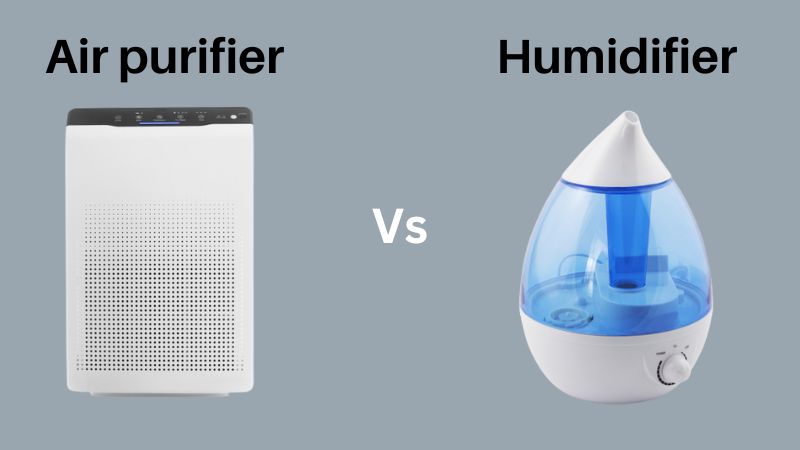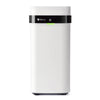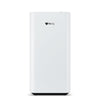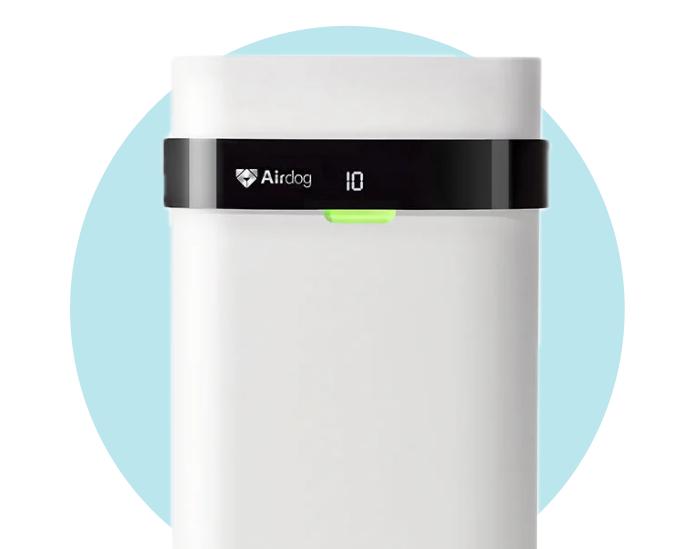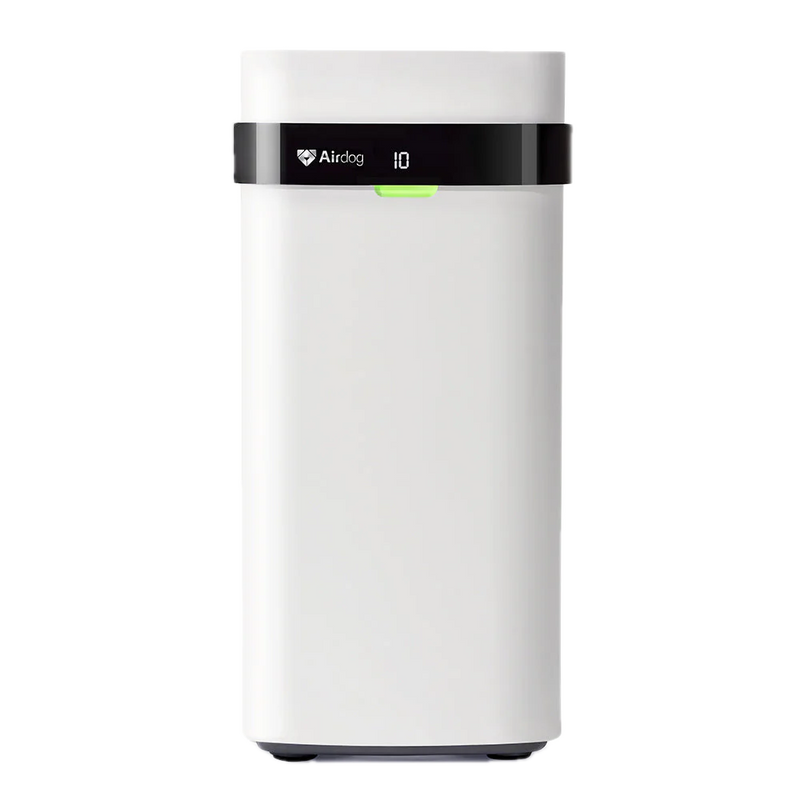Why Indoor Air Quality Matters More Than Ever
You breathe in about 20,000 times a day, most of the time indoors. And yet, indoor air often contains more airborne pollutants than the outdoors, especially in homes sealed for energy efficiency. From dust mites and pet dander to mold spores and volatile organic compounds (VOCs), indoor environments can quickly become unhealthy.
On the flip side, dry air caused by heating systems or arid climates can lead to dry skin, irritated nasal passages, and respiratory discomfort.
That’s where air purifiers and humidifiers come in. Choosing the right one for your space means understanding how they work, what problems they solve, and how to use them to meet your air quality needs.
Humidifier vs Air Purifier: What’s the Difference?
Let’s start with the basics. An air purifier is designed to remove airborne particles such as allergens, odors, smoke, bacteria, pet dander, and other airborne pollutants from your indoor environment. It's ideal for people dealing with allergies, asthma, pollution, or those sensitive to airborne allergens.
On the other hand, the primary function of a humidifier is to add moisture to the air, which helps relieve issues caused by dry air, such as dry skin, sinus congestion, irritated throats, and discomfort from low humidity levels.
You may not need to choose between them. In many cases, using both an air purifier and a humidifier together provides a more complete solution, delivering clean air that contributes to a comfortable environment for breathing, sleep, and overall health.
How Air Purifiers Work (and Why Airdog Is Different)
Air purifiers work by pulling in indoor air, destroying or removing pollutants, and circulating cleaner air back into the room. Most traditional models rely on HEPA filters (High Efficiency Particulate Air) to trap particles as small as 0.3 microns. While effective for larger particles like dust mites and pet dander, HEPA filters can still miss ultrafine particles, including certain viruses, chemical fumes, and microscopic pollutants.
To address gases and odors, many purifiers also include activated carbon filters, which use a highly porous surface to adsorb volatile organic compounds (VOCs), smoke, and other airborne pollutants that particle filters can’t capture. Like HEPA, these filters require regular replacement.
Airdog takes air purification further with its proprietaryTPA® (Two-Pole Active) Technology. Instead of simply capturing particles, TPA actively destroys them, capturing pollutants as small as 0.0146 microns, roughly 20 times smaller than what HEPA can handle. Airdog purifiers also integrate activated carbon filtration, but without the constant need for replacement. Its filters are built to last longer and can be sun-dried to restore performance, reducing both cost and waste.
How Humidifiers Work (and What to Watch Out For)
Humidifiers work by adding moisture to the air, helping to relieve dryness caused by winter heating systems, dry climates, or over-conditioned indoor environments.
There are several types of humidifiers to choose from.
Ultrasonic Humidifiers
Ultrasonic humidifiers use high-frequency vibrations to create a fine mist that's dispersed into the air. They’re quiet, energy-efficient, and ideal for quiet spaces like nurseries or home offices where low noise is a priority.
Warm Mist Humidifiers
Warm mist humidifiers boil water to produce a sterile, heated vapor, which can help ease congestion and soothe cold symptoms. They’re invaluable in the winter months, but may consume more energy due to the heating element.
Cool Mist Humidifiers
Cool mist humidifiers release room-temperature moisture and are a versatile, year-round option for maintaining comfortable humidity levels. They're effective in larger rooms and are often preferred in warmer climates.
To avoid problems, aim to maintain a relative humidity level between 30 and 50%. Levels above this range can lead to excessive moisture, which may develop mold, damage surfaces, or even introduce airborne pollutants if not managed properly.
For a safer, smarter approach, Airdog’s No Mist Humidifier uses advanced evaporation technology without releasing visible vapor. This means no mold risk, no wet surfaces, and no need to guess if your humidity levels are healthy.
Health Benefits of Each Device
Air purifiers provide significant health benefits by removing airborne allergens like pet dander, dust mites, mold spores, smoke, and other harmful particles that come from everyday activities like cooking and cleaning. By eliminating these irritants, purifiers help reduce respiratory issues such as asthma, coughing, and allergy symptoms. They also contribute to better air quality, which supports improved sleep, focus, and long-term respiratory health.
Humidifiers, on the other hand, help by easing dry nasal passages, relieving sore throats, and preventing chapped lips, especially during colder months when indoor air tends to be dry. Increasing moisture levels in the air also reduces static electricity, combats dry skin, and supports the immune system by keeping your respiratory system moist and better equipped to fight off irritants and infections.
When used together, an air purifier and a humidifier can create a healthier indoor environment by tackling both respiratory irritants and dry air. This combination is particularly effective during allergy seasons, flu outbreaks, or winter months when the air tends to be dry and polluted.
Air Purifiers and Humidifiers for Babies and Sensitive Groups
For infants and sensitive individuals, clean and properly humidified air is essential. Babies are particularly vulnerable to dry air, which can cause congestion, dry skin, and irritation, as well as to airborne allergens like pet dander, dust mites, and chemical pollutants from cleaning products.
A humidifier helps maintain comfortable moisture levels, easing nasal congestion and protecting delicate skin, while an air purifier removes the airborne particles that could trigger allergic reactions or respiratory discomfort.
Airdog’s whisper-quiet technology, ozone-free operation, and lack of harsh UV lights make its purifiers a safe and effective choice for nurseries, baby rooms, and sensitive environments where peace of mind matters most.
Do You Need an Air Purifier, a Humidifier, or Both?
Here’s a quick way to decide:
You likely need a humidifier if:
-
You have dry skin, nosebleeds, or a scratchy throat
-
You live in a dry or winter climate
-
There’s frequent use of heating or AC
-
You feel the effects of dry air during sleep
You likely need an air purifier if:
-
You suffer from allergies, asthma, or respiratory ailments
-
You have pets or live in a high-pollution area
-
You notice odors or poor air quality
-
You want clean air free from smoke or chemical vapors
For maximum health and comfort, using both an air purifier and humidifier may just be the best approach.
Final Thoughts: A Breath of Fresh, Comfortable Air
You shouldn’t have to pick between breathing clean air and feeling comfortable indoors. With the right devices, you don’t have to.
At Airdog, we believe in doing more for your air with less waste, less energy, and less effort on your part. Our TPA® technology doesn't just trap unwanted particles, it destroys them. And our No Mist Humidifier delivers all the moisture your air needs without the mess or health risks.
If you’re ready to stop choosing between clean and comfortable, we’re ready to help. Explore Airdog’s air purifiers and humidifiers today and bring smarter, safer, healthier air into your home.
Frequently Asked Questions
Which is better to use, an air purifier or a humidifier?
If you’re battling airborne particles like allergens or smoke, go with an air purifier. If you’re fighting dry air, use a humidifier. Often, both are needed.
Is a humidifier or purifier better for a stuffy nose?
Humidifiers can loosen mucus and ease congestion, but air purifiers remove the root causes like dust mites and pet dander.
Is it good to sleep with a humidifier every night?
Yes, as long as it’s clean and humidity is controlled. Otherwise, you risk creating excessive moisture and mold spores.
Is a humidifier good for babies?
Absolutely. But pairing it with an air purifier ensures indoor air quality stays safe from airborne allergens and pollutants.




